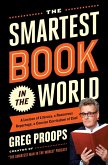In "Les Bijoux Indiscrets," Denis Diderot crafts a provocative and satirical narrative that intertwines the themes of desire, sexuality, and Enlightenment thought. The story centers around a magical ring that endows its wearer with the power to make women's most secret thoughts and desires audible. This unique premise allows Diderot to explore complex societal norms surrounding intimacy and eroticism, challenging prevailing moral philosophies while employing a blend of humor and philosophical discourse. Written in the context of 18th-century France, this novel operates within the bounds of literary libertinism, invoking both shock and reflection among its readers. Denis Diderot, a prominent figure of the French Enlightenment, was known for his advocacy of free thought and critical inquiry. His experiences as a member of the intellectual elite and an art critic informed his understanding of human nature and societal constraints. Diderot's engagement with the emerging ideas of freedom and sensuality likely spurred the creation of "Les Bijoux Indiscrets," reflecting his desire to critique both political and sexual repression of his time. This audacious work is highly recommended for readers interested in the interplay of literature and philosophy. "Les Bijoux Indiscrets" invites an exploration of the boundaries between desire and decorum, making it a vital read for those seeking to understand the undercurrents of Enlightenment thinking and its impact on contemporary discussions of sexuality and freedom.
Dieser Download kann aus rechtlichen Gründen nur mit Rechnungsadresse in A, B, BG, CY, CZ, D, DK, EW, E, FIN, F, GR, H, IRL, I, LT, L, LR, M, NL, PL, P, R, S, SLO, SK ausgeliefert werden.
Hinweis: Dieser Artikel kann nur an eine deutsche Lieferadresse ausgeliefert werden.









